Meet the Zagreb Digital Nomad Week Locations: Canopy by Hilton (Interview)
June 15, 2021 - Zagreb Digital Nomad Week 2021 kicks off on June 21 with Day 1 dedicted to cybersecrity at Canapy by Hilton, a recent very funky addition to the Croatian capital's hotel scene.
I paid my first visit to Canopy by Hilton in Zagreb a few weeks ago, a recently-opened hotel in the capital, and the third in the Hilton brand in the city. It was a hotel like no other I had been to in Croatia. More part of the community than a 4-star hotel. A very modern and funky feel. The perfect place to kick off Zagreb Digital Nomad Week 2021, I thought to myself. And I was delighted when the progrressive marketing team from Canopy by Hilton recognised the digital nomad opportunity for the city and offered to help by hosting that all-important first day. With such a great setting, and with Marko Rakar the keynote speaker on cybersecurity (you can read Marko's interview here), ZDNW should get off to a great start.
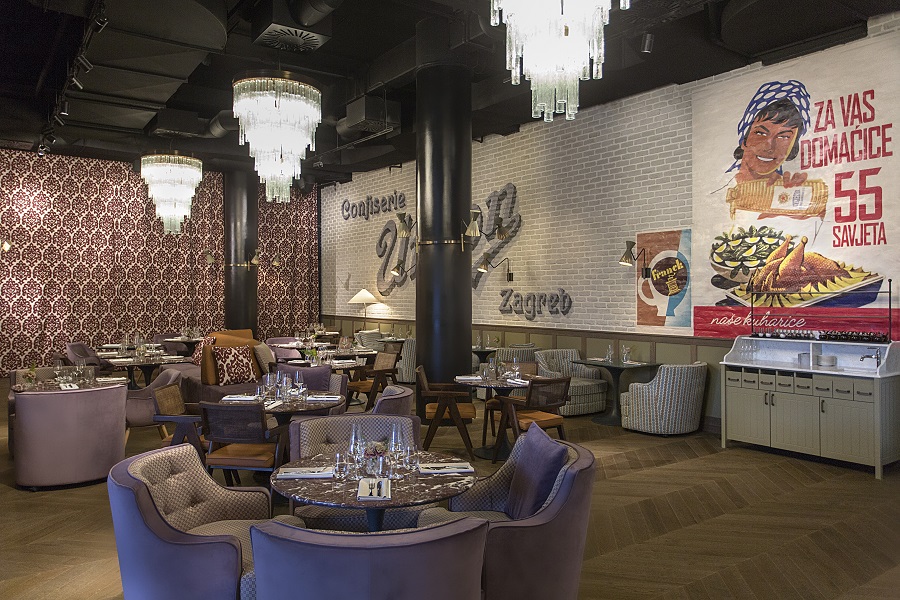
In addition to the great organisation, I am very grateful to Nives Volarevic, Cluster Marketing Director for Hilton Hotels in Zagreb, for finding time for this pre-event interview.
1. I was on a day trip to Plitvice last week with an executive from Airbus who told me that she always stays in the funkiest hotel she can find in a city, and Canopy by Hilton was her Zagreb choice. It is certainly a little different from a traditional hotel concept. As it is a relatively new hotel in Zagreb, people may not be so aware. Tell us a little about theCanopy concept.
Canopy by Hilton is Hilton’s lifestyle hotel brand focused on the neighbourhood - local and authentic.
The hotel is situated in the heart of the Croatian capital, near the city’s main rail station and within the Branimir Centar shopping mall. Guests can grab a complimentary Canopy Bike and explore the many nearby attractions, where there are shops, restaurants, and nightlife in every direction. With more museums per capita than any city in the world, and with a vibrant art and theatre scene, Zagreb is a city of great culture with much to explore.
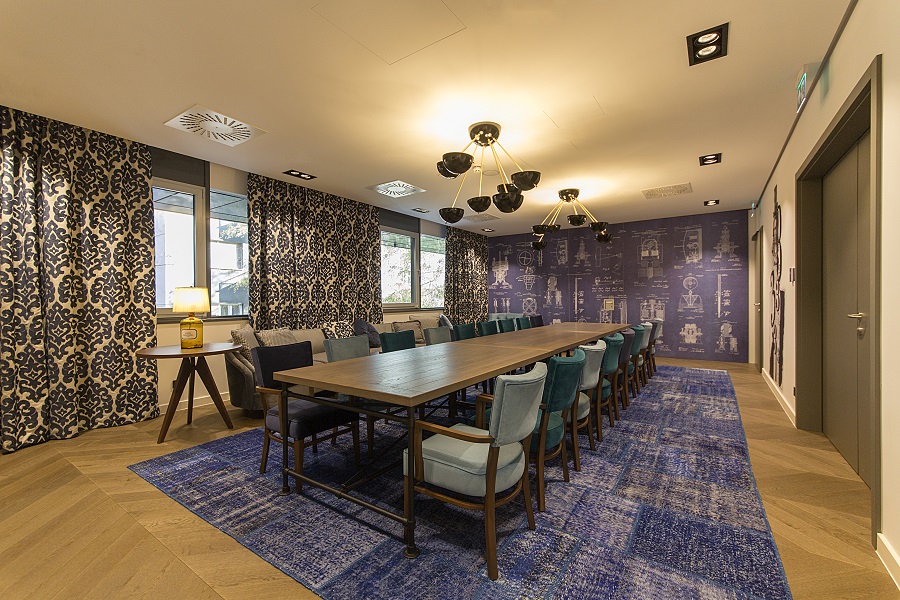
The hotel is home to 151 guestrooms, including eight spacious suites. The interiors of the rooms are inspired by the local neighbourhood, with local textiles and artwork featured throughout, and the signature canopy is inspired by Croatia’s national emblem.
For breakfast, guests can start their day with an inclusive artisanal breakfast in Canopy Central or have a Canopy Breakfast Bag delivered to their door. Guests can savour authentic cuisine with fresh local ingredients at the ReUnion Restaurant, or small nibbles, bites and local spirits, wines and craft beers at Canopy Central Café and Bar. Each evening, the Canopy Central Bar hosts a complimentary tasting of local drinks and bites for hotel guests.
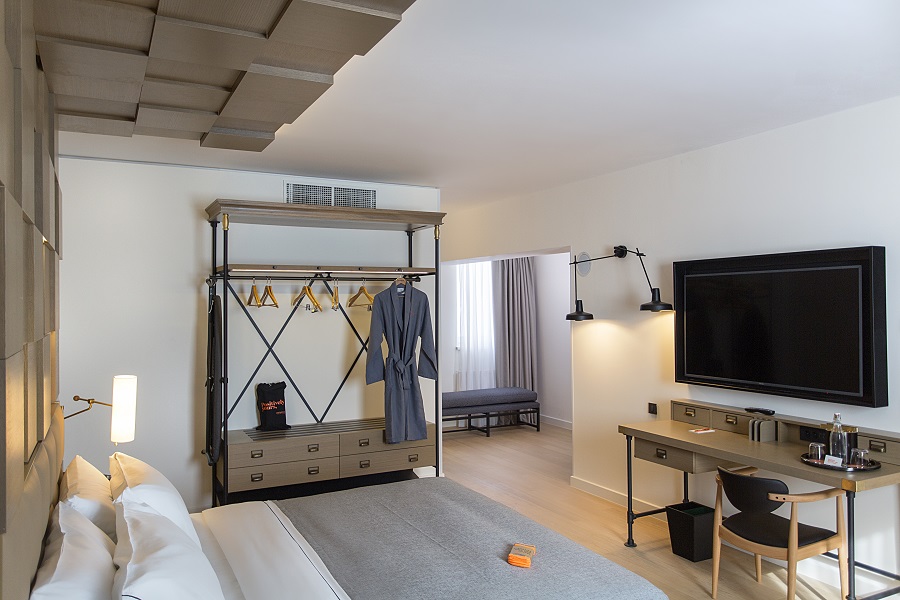
For meetings and events, Zagreb is a great choice as it is superbly connected by its recently expanded airport which is just 20 minutes away from Canopy by Hilton Zagreb. The hotel has two meeting rooms which are ideal for smaller meetings and social events such as cocktail receptions. The hotel also has a spacious 24-hour fitness centre.
Canopy Enthusiasts (staff), or local experts, are available for guests looking for recommendations on the must-see landmarks in Zagreb – anywhere from restaurants to excursions.
2. Canopy by Hilton will be hosting the opening day of Zagreb Digital Nomad Week 2021. Tell us about your involvement, and why you decided to get involved.
We recognized the opportunity to get to know digital nomads better, their needs and desires, special requirements, but also to explore a new tourist niche in the market. Canopy by Hilton Zagreb with its atypical design, relaxed atmosphere, graffiti on the walls and local character is really made for digital nomads to absorb the local art and culture and get to know Zagreb and its residents. Also, there are some fantastic spots in the hotel to use as a working space; community table at our Canopy Central bar, social table at ReUnion restaurant. Business centre on 1st floor. And a Retreat room if they need some quite place to work or meet.
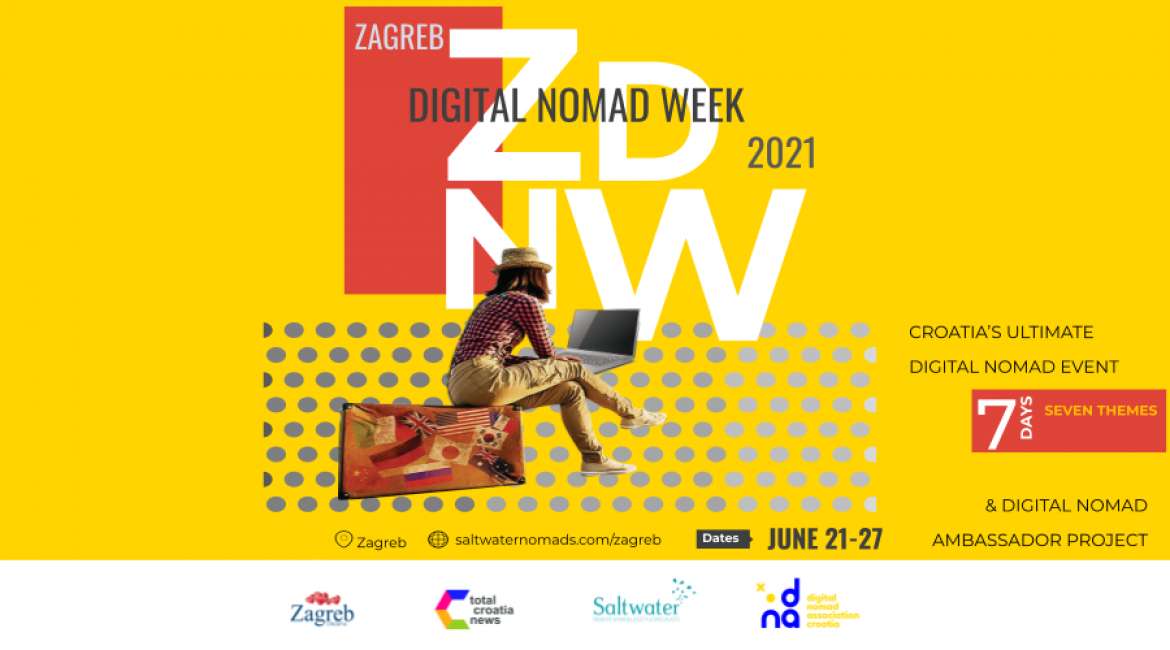
3. There is certainly a lot of buzz about Croatia and digital nomads, especially after the introduction of the 12-month permit. Are you seeing an increase in remote workers staying at your three Zagreb hotels?
In the last year and a half we have noticed a larger number of guests who came to Zagreb for business, but due to covid measures spent more time in the rooms working. Many of them have recognized Zagreb as a destination that is well connected with European cities, provides quality and a not too expensive lifestyle and has a diverse offer of art and cultural content.
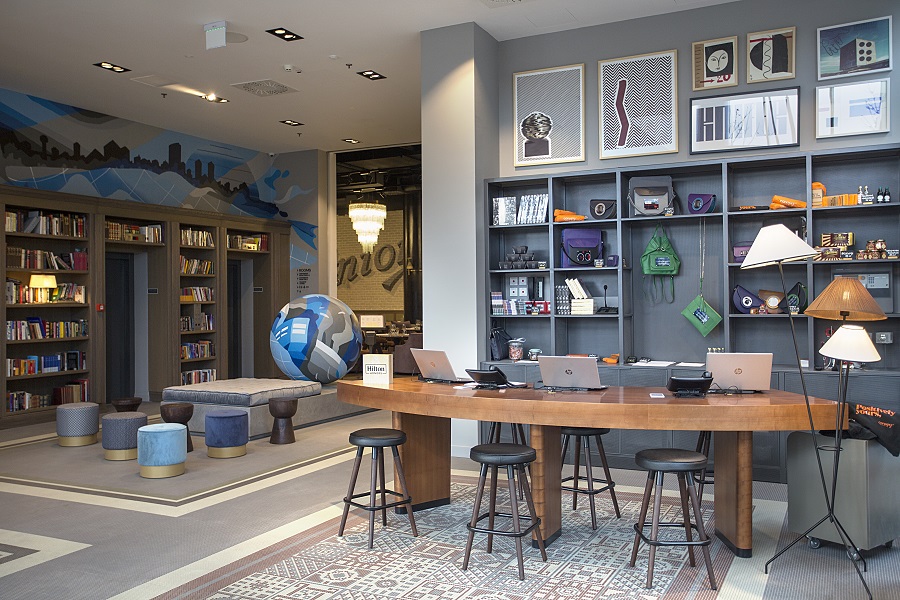
4. How does a hotel adjust its offer to meet this new tourist demand, and what concrete steps have you taken in this direction?
We are still just learning how the life of a digital nomad works, what are their needs and their expectations. We try to provide everything they expect but also a little bit more.... We know that working on a computer is often lonely so we assumed that hanging out with people with similar interests would be something that would be a good counterbalance. We are adapting to the new situation, we create our hotel offer according to their needs. At this point, the most important thing is to be flexible.
5. What are for you the biggest attractions of the city of Zagreb for potential digital nomads?
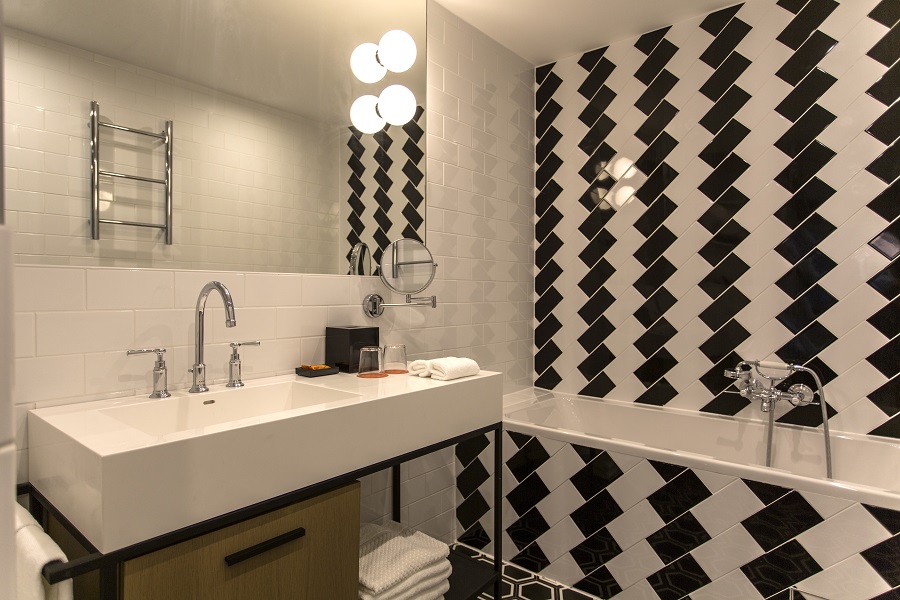
Except the well-known Zagreb attractions such as the Old Town or the Cathedral in Zagreb, there are many less-known places, parks, churches and curiosities.
I would recommend many excellent food, film and wine festivals, exploring the surroundings of Zagreb through excellent wineries, many exhibitions of Croatian and international artists. I would especially highlight the Grounded Solar System of Zagreb; many don't know that in 2004, the other planets joined the Grounded Sun (author Ivan Kožarić, Bogovićeva Street) to form Zagreb's grounded solar system. The creator is Davor Preis, who had an incredible idea how to make it possible for citizens of Zagreb to explore our Solar System without leaving our beloved capital. He has placed the planets all across the town, according to their correct sizes and distances from the Sun. They are placed in more than one direction from the Sun as if they were actually rotating around it. Today, finding the planets is considered a treasure hunt loved both by locals and tourists in Zagreb.
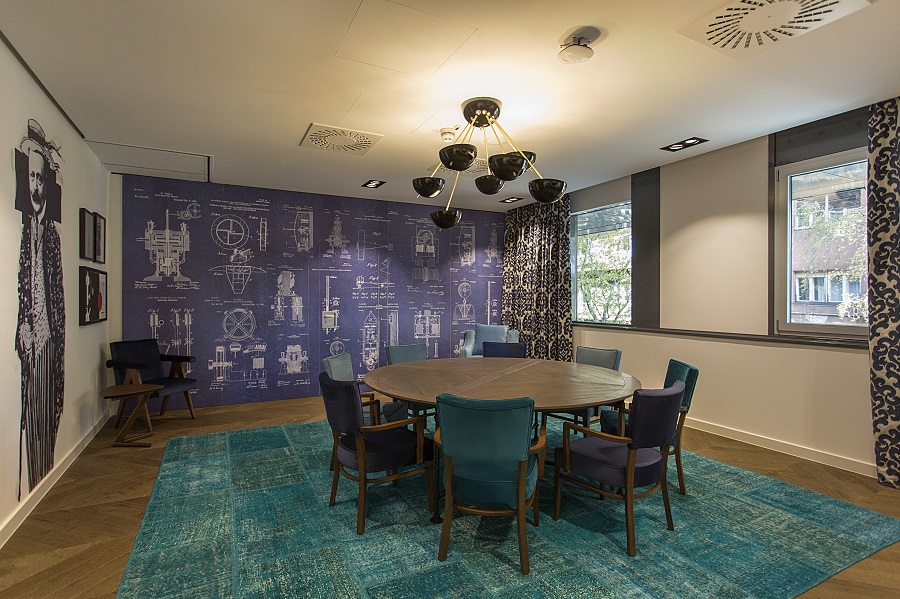
You can learn more about Canopy by Hilton in Zagreb on the official website.
For more information about Zagreb Digital Nomad Week 2021 & Zagreb Digital Nomad Ambassador Project, visit the Saltwater Noamds website. ZDNW is organised by Saltwater Nomads, TCN and Zagreb Tourist Board, who are financing the project.
For the latest news and features about digital nomads in Croatia, follow the dedicated TCN section.
SDP Demands All Croatian Citizens Be Allowed To Donate Blood Without Discrimination
June 15th, 2021 - On World Blood Donor Day, SDP issued an appeal demanding that all Croatian citizens be allowed to donate blood without discrimination, as is the case in most EU countries. Blood donation is not a question of sexual orientation, but only a desire to help.
As Večernji reports, the Ordinance on special technical requirements for blood and blood products states that blood must not be donated by "persons whose sexual behaviour puts them at high risk of contracting infectious diseases that can be transmitted through blood". The website of the Croatian Institute for Transfusion Medicine states that blood must not be donated by "men who have had sexual intercourse with other men in their lives." Such men are permanently banned from donating blood solely because of their sexual orientation, which is extremely discriminatory and unconstitutional, SDP claims.
Restrictions on blood donation were prescribed back during the 1980s owing to the HIV pandemic, but today there is no reason for such drastic restrictions that put a certain social group in an unequal and defamatory position, the Social Democrats believe.
"The obligation of the Croatian Institute for Transfusion Medicine is to test each dose of donated blood for hepatitis B, hepatitis C, syphilis, and HIV. The safety of donated blood is ensured by a temporary ban for people who have been at risk of becoming sexually and blood-infected in the last three months, but this does not depend on sexual orientation. The question, therefore, arises as to why gay men are obliged to state their sexual preferences to a doctor and why they are permanently banned from donating blood solely because of this fact?" SPD wrote in their statement.
Back in 2015, a court in Strasbourg ruled that the criteria for donating blood based on sexual orientation were both stigmatising and discriminatory. "Today, when Croatia is facing a shortage of blood supplies and blood products, which is why more complicated operations are being postponed in some hospitals, any restriction that could endanger the health or the life of a human being is unacceptable for us," SDP stated.
They point out that Croatia has one of the most rigorous laws in the world on this issue, so we're in a group of countries such as China, Lebanon, UAE, Venezuela, and Turkey.
"There are also Switzerland, Austria, not to mention further. The criteria are adopted by the profession guided by the safety of blood recipients and in accordance with epidemiological trends and risks. This is not about discrimination because it is not the only population that cannot donate blood. Epidemiological indicators show that more than 90% of newly diagnosed HIV cases in Croatia every year are among men who have sexual relations with men," explained Dr. Irena Jukic, the director of the Croatian Institute for Transfusion Medicine.
She states that a lot of attention and a lot of money is spent on tests in order to avoid the danger of contracting an infection through blood transfusion, and during the summer they will test the entire population of blood donors for the presence of the dangerous West Nile virus. Despite all modern molecular tests that can be done, there is a so-called window period, a certain number of days or weeks during which the blood can still transmit Hepatitis B, Hepatitis C, Syphilis and various other infectious diseases without a test picking up on their presence.
"In this 'window period', positivity cannot be detected either by an antigen test or an antibody test," stated Dr. Jukic, adding that a transfusion can be given intrauterine, ie to the child when still in the mother's womb.
"On World Blood Donor Day, politicians could unite and donate blood. A lot of them are able to give blood, and they don't do that, although that would help those who need it the most," Dr. Jukic added.
Blood can be given by any healthy person between the ages of 18 and 65 if they weigh at least 55 kilograms, have a normal blood pressure and enough hemoglobin in their blood.
For more about news in Croatia, follow TCN's dedicated page.
800,000 Passengers at Split Airport this Year? UK Market Will Decide
June 15, 2021 - How many passengers at Split Airport will be recorded this year? That hugely depends on the UK market.
The European Center for Disease Prevention and Control (ECDC) green list means unhindered movement without the risk of COVID-19 infection, and that is exactly what Croatia wants to be this summer, reports Slobodna Dalmacija.
After Croatian counties were made green by Switzerland and almost entirely by Germany (except Varaždin and Međimurje), it is expected that a good epidemiological picture will remain in force, which is a basic prerequisite for more intensive tourist trips to the Adriatic.
They are also hoping for that at Split Airport, which received about 10,000 passengers last weekend, mostly in 55 large commercial aircraft, 2,000 more than the previous one.
"That number of flights is not small. If we know that companies have to take care of occupancy (this factor is significant because they will not fly if the plane is empty), then this is a good indicator, because last weekend we had a larger number of passengers on a similar number of flights, which is a sign that occupancy is better. And that again gives hope that all these flights will stay, and the companies will increase their number," said Pero Bilas, assistant director of Split Airport, where, of course, projections have already been made for this summer.
"If the favorable epidemiological situation is maintained from June to September, i.e., in the four peak months, we can expect approximately 800 thousand passengers. This can be divided so that there are ninety to one hundred thousand of them in June and the same number during September, and about three hundred thousand in July and August. However, the projection contains several elements, and one of them is that companies have the right to cancel the announced capacities up to 50 percent. But the first and basic condition, without which one cannot do, is the epidemiological picture. We need to stay green. Without that, there is nothing," adds the assistant director.
May, in which the turnover of approximately 33 thousand passengers was realized, with 14 markets in which 15 airlines flew, was a good announcement of what awaits us in the coming period. Although the Airport is already recording an increase in traffic in the first half of June, confirmations of flight announcements for longer than three weeks are ungrateful given the changing variability of the epidemiological situation in Croatia and the world.
"In May, we had 14 markets, and now, in June, we are at 24. This is almost the whole of Europe, along with Russia, Ukraine, and Serbia. And that’s great considering the circumstances. We will now have 30 to 40 airlines, which have traditionally flown to us. Croatia is open, there is exceptional interest, desire, and will, but currently, a situation is in force when you offer something and wait for a reaction," explains Pero Bilas. He says that it is excellent that Germany and Switzerland have put us on the green list and that we currently share the same fate with similar countries, such as Spain, France, Italy, Greece.
But the big question mark remains the UK market. Rising numbers of those infected and hospitalized because of COVID 19 are a subject of 'serious concern,' British Prime Minister Boris Johnson said last weekend, acknowledging that he was less optimistic about opening the country than he was in May. Recall, on May 17, Brits could start hanging out indoors, in restaurants, pubs.
"It is clear that the Indian variant is more contagious, and it is also true that the numbers are growing and that the level of hospitalizations is rising," said the Prime Minister for Sky News.
"And now we have the following situation with Brits - we have been quite open since the beginning of April, but the catch is in their return to their own country. They need a negative PCR test at boarding, not older than 48 hours, then isolation, and again a PCR test after two and eight days. When you add up the time, cost, and energy invested in a return, it’s complicated for people. In addition, the number of infected people, regardless of vaccination, is growing slightly. Obviously, this Indian strain is spreading. And I don't have to tell you what the British market is to us. London has been our number one destination for decades, and it will definitely be felt in Split," says the assistant director of Split Airport.
From July 5, three flights from Amsterdam to Split
Optimism, for example, is fueled by the news that the Dutch national airline Royal Dutch Airlines is introducing a third daily flight between Amsterdam and Split on 5 July. The KLM plane will arrive at the Split Airport in the evening (21.40), and after spending the night in Split, it will fly back to Amsterdam at 6.45.
On the other hand, the Irish airline Aer Lingus has suspended sales on almost all routes from Dublin and Cork to Croatia for this summer season. The Dublin - Split - Dublin line, previously announced three times a week, has also been withdrawn from sale, and the Cork - Dubrovnik - Cork line is no longer on sale. The only line on which Aer Lingus still allows you to buy a ticket between Dublin and Dubrovnik. However, Croatian airports are already connected to Dublin with other airlines (Croatia Airlines, Ryanair). Many Croatian emigrants in Ireland decide to travel by transfer, especially via Amsterdam with the Dutch KLM, due to lower air ticket prices.
Dubrovnik has 32 lines
Dubrovnik Airport has 32 domestic and international routes from 16 to 30 June this year. In the mentioned period, Dubrovnik will be connected with Amsterdam, Athens, Barcelona, Belgrade, Berlin, Vienna, Brussels, Copenhagen, Frankfurt, Hamburg, Helsinki, Madrid, Moscow, Paris, Prague, Rome, Stockholm, and Zurich. At the beginning of July, it will establish regular lines to New York.
EasyJet has four lines to Split
British EasyJet has announced a significantly higher number of routes to Croatian airports since the end of June. The company currently has four routes only to Split Airport (from Basel, London, Berlin, and Geneva) and will continue to operate on them in the coming weeks. In addition, from the end of June, there will be five more lines in operation: Amsterdam - Split, Bristol - Split - Bristol, Lyon - Split - Lyon, Paris - Split, and Orly - Split - Orly. By the end of this month, EasyJet will, according to current plans, resume traffic to the other three Croatian airports - Dubrovnik, Zadar, and Pula.
Follow the latest on flights to Croatia HERE and the latest travel updates and COVID-19 news from Croatia HERE.
For more on travel in Croatia, follow TCN's dedicated page.
Hajduk Preparations for 2021/22 Season Kick Off at Poljud (VIDEO)
June 15, 2021 - Hajduk preparations for the 2021/22 season kicked off Monday at Poljud with new coach Jens Gustafsson.
In the Hajduk Salon at Poljud, coach Jens Gustafsson and his assistants gathered the Hajduk A-team players at the beginning of preparations for the new season. The Management Board President Lukša Jakobušić and the sports director Mindaugas Nikoličius spoke to the players along with the head coach before the very beginning of the preparations, announced Hajduk.hr.
The first gathering was attended by 30 players:
Kristian Dimitrov, Alexander Kačaniklić, Stefan Simić, Marko Livaja, Dimitrios Diamantakos, Marin Jakoliš, Josip Elez, Jani Atanasov, Jairo, Dino Skorup, Stanko Jurić, Luka Škaričić, Stipe Biuk, Karlo Sentić, Ivan Dolček, Toni Silić, David Čolina, Ivan Perić, Mario Vušković, Josip Posavec, Emir Sahiti, Ivan Ćubelić, Marin Ljubičić, Tonio Teklić, Mark Bushaj, Mario Čuić, Tino Blaž Lauš, Madžid Šošić, Ivan Čalušić, Ivan Šarić.
Samuel Eduok will join the team on Tuesday, and the arrival of Lumbard Dell is expected later.
Hajduk had their first training on the Poljud auxiliary field, since work is underway on the main pitch to change the lawn.
"Today we start with light training, and then throughout the week, we continue with two training sessions a day, until the weekend when we play the first preparatory match in Dubrovnik. First of all, we will dedicate ourselves to working on physical fitness, and then to our style of play, that is, the style we want to play. I feel comfortable at the start of the preparations, we are all very ambitious, I feel a good balance between different personalities in my staff, and I hope that together we will improve Hajduk. We will fight and compete as long as we can and better, we have a long way to go and everyone will demand the maximum from everyone," said coach Jens Gustafsson.
"There are a lot of new, young players, who with their games through the Academy have shown that they deserve to be here with us. They will definitely need a little time to grasp everything, and we seniors will allow them everything to adjust as quickly as possible. I think we all had a good rest together and now we have to dedicate ourselves to our goals, which is to try to enter the groups of the Conference League, if we are able to achieve that, and to better prepare for the championship where we also have high ambitions," added Marko Livaja.
To follow the latest sports news in Croatia, follow TCN's dedicated page.
To learn more about sport in Croatia, CLICK HERE.
After Losing Local Elections, HDZ Shuts off Free Oroslavje Internet
June the 15th, 2021 - You've heard of sore losers before, probably in races you took part in back in school. As adults, we usually learn to take loss better and look at competition more healthily. That doesn't apply to everyone, though. Following their loss in the recently held local elections, HDZ has decided to shut off the free Oroslavje internet.
As Poslovni Dnevnik writes, the brand new mayor of Oroslavje, Viktor Simunic, who took over power from HDZ two weeks ago, announced that the former government in the city had turned off the free Oroslavje internet.
Upon arriving to work in the morning, Simunic was shocked the learn that there was no internet connection on any city computer.
''Last week, we asked the former government for all of the data in order to access the internet, as well as all the keys to the lockers. We didn't receive the data, the Oroslavje internet was cut off, and the keys were brought to the city administration only this morning.
The project, for which we all paid over 800 thousand kuna, was shut down. Since they deleted our database, unfortunately we don't even know who used the internet or how many users there are on it.
The following is a list of inventories and analysis of the situation, and we'll inform you about everything, but unfortunately we cannot solve the problem immediately due to its complexity. So I'd like to ask you for your understanding and patience.
I understand the anger and resentment, however this was not my decision.
I'm asking everyone who invested their funds in the equipment and used the free Oroslavje internet to contact the city's e-mail: This email address is being protected from spambots. You need JavaScript enabled to view it.,'' wrote Simunic on Facebook following the bizarre incident following HDZ's recent loss in Oroslavje.
For more, make sure to follow our dedicated politics section.
Vedran Sosic: We Need to Lower Number of "Zombie Companies" Post-COVID
June the 15th, 2021 - Just what needs to be done to speed up economic recovery following the coronavirus pandemic? Respected Croatian economist Vedran Sosic says that we need to take a serious look at the number of so-called zombie companies as the pandemic draws to a close, and limit them.
As Ana Blaskovic/Poslovni Dnevnik writes, the pace of economic recovery could vary very significantly between countries, said the Croatian National Bank's chief economist Vedran Sosic in Rovinj at the 9th meeting of the region's governors, primarily due to their different economic structures and aid effectiveness. The state has helped companies out financially and with various job preservation measures, but now it's crucial that we work to reduce the number of zombie companies, and the speed of recovery will also depend on how much households will spend on ''forced'' accumulated savings due to the global crisis.
Vedran Sosic gave a presentation entitled "Post-Covid Syndrome in the Economy and Financial System: How do we Deal with It?" explaining that the current crisis will spur some structural changes in numerous economies, and that economic policies will play a key role in preserving growth potential, especially through support for companies and workers in the most affected industries.
The business of companies has been hit by restrictions, epidemiological measures have brought with them higher costs, and at the same time their demand has decreased, supply chains have been disrupted and general insecurity has increased. While strong fiscal support has helped businesses, the question now is of the optimal rate of the withdrawal of that support.
“These subsidies have reduced the insolvency rates of companies even below the levels normal for good times, which, among other things, has enabled an increase in the number of zombie companies that are squeezing out healthy companies and the damage is growing in the long run. Reforms aimed at reducing zombification are vital,'' Vedran Sosic said.
In the ongoing coronavirus crisis, the savings rate rose with a simultaneous decline in investment. "If households don't spend their accumulated additional savings, it could negatively affect the speed of recovery," the CNB chief economist said, adding that the pandemic and restrictive measures limited private consumption, while state aid compensated for part of the loss of income, and high levels of uncertainty generally reduced the propensity to spend.
"All this has led to ''forced'' savings in addition to the precautionary savings common during times of crisis. Although it isn't possible to determine exactly who saved the most during the crisis, an increase in savings was probably pronounced among those with higher incomes who will probably not significantly increase their spending during the recovery,'' said Vedran Sosic.
He also referred to the residential property market, saying that it had shown a level of resilience, meaning that the price levels more or less remained the same throughout the crisis. Here in Croatia, residential real estate prices rose by 7.7 percent last year. At the same time, due to new trends related directly to the pandemic, such as increased work from home and an increase in online shopping, prices for commercial real estate have fallen.
For more, follow our dedicated business section.
Is Croatian State Playing God by Making Investing Easier for Some Than Others?
June the 15th, 2021 - Is the Croatian state playing God by making it easier for some to invest than it does for others? In any case, a safe business environment stimulates economic growth, and without creating that, the Croatian economy won't be moving anywhere up any time soon.
As Poslovni Dnevnik/Darko Bicak writes, establishing a predictable and reliable business environment is a prerequisite for any sort of economic growth and the application of new technologies through the Industry 4.0, it was said at the Industry Day conference held on Friday in Zagreb, organised by the Croatian Employers' Association (HUP).
Mihael Furjan, President of HUP, pointed out that only investments in new technologies can lead to the creation of products and services of higher added value, and then to the accelerated growth of the economy.
Croatia doesn't produce the necessary staff
All enterrpises must change their mindset and turn to new technologies and modern business models, agreed the interlocutors of the panel.
Kristian Krpan warned that here in Croatia, we have the biggest problem with large companies because they're often neglected in relation to small and medium-sized companies, to which all EU funds are directed.
"The Croatian state is playing God, where it is decided which companies will be helped out and their investments and digitalization facilitated, and which will not get that help. Now we have a situation on our hands in which there is a much smaller difference between small and medium-sized companies in Croatia and Germany than larger ones,'' said Krpan.
He added that productivity among large Croatian companies is four times lower than it is in similar ones in Germany, and that this is a problem that affects salaries, staff and everything else. Jelena Festini Ugrina complained about the fact that the Croatian state has used bureaucratic maneuvers to allocate almost all the money from EU funds and the Recovery Plan to the public sector, while merely throwing a few crumbs to the private sector.
Zoran Gligoric pointed out the problem of an inadequate education system, which is almost in no way connected with the economy and the labour market and doesn't produce the staff that companies need - whether it is secondary vocational education or higher education.
Sergio Galosic said that it is difficult to precisely quantify digitalisation because it is a multidimensional process, and that we need to work harder to eliminate the gap between old and new
“We've been in Industry 4.0 for a long time now and we're comparable, perhaps even better in some cases, than EU companies. From my own experience, I can say that digitalisation has enabled us to grow by 25% and increase our levels of competitiveness. However, we're also aware that it isn't necessary to digitise absolutely everything, but only those processes for which it makes sense to do so,'' concluded Galosic.
A great opportunity to finance new technologies lie in European Union funds, and Natasa Cueic Martincevic from Apsolon tried to explain how we can better cope with the forest of European rules and sources of capital.
She pointed out that Croatia has almost 24 billion euros at its disposal over the next seven years, and mechanisms and opportunities must be created to use as much of that money as possible.
Marin Bek from Ascalia said that it must be clear that digitalisation in the industry will not necessarily increase, double or triple production for everyone, but that it will first of all give us more information from the production process itself. He added that in Industry 4.0, it is primarily necessary to eliminate the gap between new technologies and traditional production, and that everyone must assess what is optimal for production in their respective situations.
Dusko Radulovic from Sensum tried to demystify the term “adaptation to climate change” and explain how knowledge and management of our carbon footprint can reduce operating costs and the consumption of raw materials.
"The economic effects of climate change are already visible - insurance companies have more expensive premiums for houses closer to the sea due to floods, and also due to irregular rainfall, energy and water management interventions are changing," said Radulovic.
He added that the circular economy and energy efficiency will be the postulates of the industry in the coming years.
For more on the Croatian state and investments in Croatia, either from at home or from abroad, make sure to follow our dedicated business section.
Coko Jagodica: Valentina Anic's Special Strawberries Exported to EU
June the 15th, 2021 - Coko Jagodica owned by Valentina Anic are the perfect Croatian item for anyone with a sweet tooth. It seems they've not only been well received across the country, but also across the European Union (EU).
As Poslovni Dnevnik/Marta Duic writes, Coko Jagodica is a Zagreb-based brand started by a young entrepreneur Valentina Anic from her very own kitchen. Each individual strawberry is bathed in premium Belgian chocolate, without any artificial colours, they are from organic farms and are hand-decorated. Today, three months after starting the business, Coko Jagodica is delivered throughout the Republic of Croatia, and Valentina is expanding her offer, slowly but surely conquers foreign markets.
“The brand was launched very spontaneously, I'd even say by accident and out of pure love for sweet food. The idea came up on Valentine's Day this year, and the day after I opened my Instagram profile, well, that's how it all started. For now, I do everything myself, but with the increase in work and as time goes on, I'll soon have to look for employees. This business year has been the most important for me. Given that this is the first year of me doing business, it's very important what impression I leave. Therefore, I tried to pay attention to every detail,'' explained Valentina Anic. The most significant investment for her was the very starting up of her business, and her story is spreading further from month to month.
"So far, I've agreed to cooperate with two agencies for organising events. There are a lot of questions and agreements that we still have to negotiate and it seems to me that there will be more associates soon,'' explained Coko Jagodica's owner. Her focus was first on strawberries and chocolate, and she recently introduced apples and cherries, and soon it will be the turn of other fruits.
In addition to standard chocolates in the form of chocolate boxes (smaller and larger packages) Anic introduced boxes and bouquets with flowers or towers in the shape of cakes. Initially, she planned to sell via social media, more precisely through Facebook or Instagram, and her main goal was for customers to choose what they wanted and arrange their order, and today she is making new plans and devising other sales channels.
"Considering that the business started very well in a relatively short period of time, we were being asked more and more about whether there's a small shop where people can come without making a prior order to choose and buy ready-made products. Ideas and plans about that are in my head,'' explained Anic.
Coko Jagodica is produced in her own home, that is, in her kitchen. Later, a special space in front of the house became a place intended exclusively for Coko Jagodica, and the young entrepreneur isn't lacking in her desire to expand production.
''There's such a great love for this job that the strawberries are very often being prepared all night long, without sleep. The biggest order so far was for Mother's Day, and 50 kilos of strawberries were sold on Saturday and Sunday,'' revealed the innovative Anic.
Belgian chocolate, which is a key ingredient in this dessert along with the fruit, is sourced directly from its original producers. As for the berries, they are from organic farms, and she buys them from family members located in the vicinity of Zagreb.
“Early in the morning, they deliver freshly picked strawberries to me every day. They're grown in greenhouses, so supply is possible all year round. The interest is great, each strawberry is hand-decorated down to the last detail and I’m sure people will recognise that. Besides, this os something completely new on the Croatian market. In addition to delivering across Croatia, we also sell them abroad. These strawberries most often travel to Germany, Italy and Austria. That percentage is still significantly lower than the sales on the Croatian market, but it's also growing more and more,'' points out Anic, who has her eye firmly on further business development when the time is right.
"First of all, the focus is on the opening of a small sweet bar in the centre of Zagreb, where people will be able to come, sit down, drink a glass of champagne with strawberries, pick up their order or buy ready-made products without prior notice,'' concluded Coko Jagodica's owner.
For more, follow Made in Croatia.
Government Denies Report On One Billion Kunas Less For Croatia from EU
June 14th, 2021 - The government on Monday refuted as untrue the allegations by the Jutarnji List that after the European Commission perused through its National Recovery and Resilience Plan (NPOO), imprecision detected in relations to the costs have resulted in one billion kunas less for Croatia from the EU.
The amount of grants set aside for Croatia under the Recovery and Resilience Facility is €6.3 billion (approximately 47.5 billion), as also carried in the relevant regulation adopted by the European Parliament and the Council establishing a Recovery and Resilience Facility on 18 February. The mentioned amount has never been questioned since the adoption of the said regulation, the government says.
In the same vein, the elaboration of the 2021-2026 National Recovery and Resilience Plan (NPOO) was conducted so that the total value of the reforms and investments set out in the plan should not be below the target of HRK 47.5 billion, the government says.
The government's decision on defining the draft national recovery and resilience plan 2021-2026, prepared for the fine-tuning with the European Commission on 29 April, defined the draft in the amount of HRK 48.7 billion, which was above the allocation of HRK 47.5 billion set aside for Croatia.
The subsequent contacts with the European Commission aimed at hammering out the document resulted in the amount of HRK 48.2 billion, which is still above Croatia's allocation defined by the above-mentioned regulation adopted by the EP and the Council, the Plenković cabinet says.
The reduction of sums "is a consequence of hammering out the assessed costs for certain investments, such as adjustment of VAT treatment and adjustment of eligibility of costs."
(€1 = HRK 7.5)
For more, follow our business section.
HBOR And EIB Sign €50m COVID Guarantee Agreement
June 14th, 2021 - The European Investment Bank (EIB) and the Croatian Bank for Reconstruction and Development (HBOR) on Monday signed the Covid Guarantee Agreement in the amount of €50 million for loans taken by Croatian mid-caps and large corporations to help them recover from effects of the COVID-19 pandemic.
In a joint press release, EIB and HBOR said the EIB contribution valued at €25 billion stems from the European guarantee fund (EGF) set up by EIB in 2020 to accelerate post-COVID recovery, job keeping measures, and to provide much-needed liquidity for European companies.
This is the first EIB operation in Croatia stemming from the EGF, following three EGF operations implemented by the European Investment Fund (EIF). The EIF operations provided guarantees for €350 million in loans. Today’s agreement with HBOR puts the total amount of loans guaranteed by the EGF in Croatia to €513 million, the press release notes.
Teresa Czerwinska, vice president of the EIB, who is in charge of Croatia, said that the "EIB-HBOR agreement is good news for Croatian economy and local mid-caps and large corporations. It brings further economic relief crucial for faster recovery from the COVID-19 crisis."
Tamara Perko, President of the Management Board of HBOR, said that this Guarantee Agreement "will enable HBOR to approve loans with lower collateral requirements to mid-caps and large companies."
These benefits will be available for direct working capital loans and investment loans to mid-caps under the existing HBOR’s loan programs. It is our pleasure that the EIB has recognized HBOR as its first partner for cooperating under this program in Croatia, which makes it possible for us to offer further benefits to our entrepreneurs irrespective of their size," said Perko.
Croatian companies whose loans were approved six months before the agreement between EIB and HBOR can apply for the guarantees provided the loan agreements were signed after the European Commission approved state support to introduce this financial facility for Croatia.
The EIB reported that the EGF had approved funding amounting to almost half its target for 2021. After clearance under the EU state aid notification process in December 2020, the initiative has now approved €11.7 billion in support of European businesses struggling with the economic fallout of the COVID-19 pandemic. This is almost half the fund’s target for 2021.
The fund mobilizes additional financing, and initiatives approved so far are expected to generate €93.9 billion in funding and investments for the EU economy, the press release notes.
For more, follow our business section.


